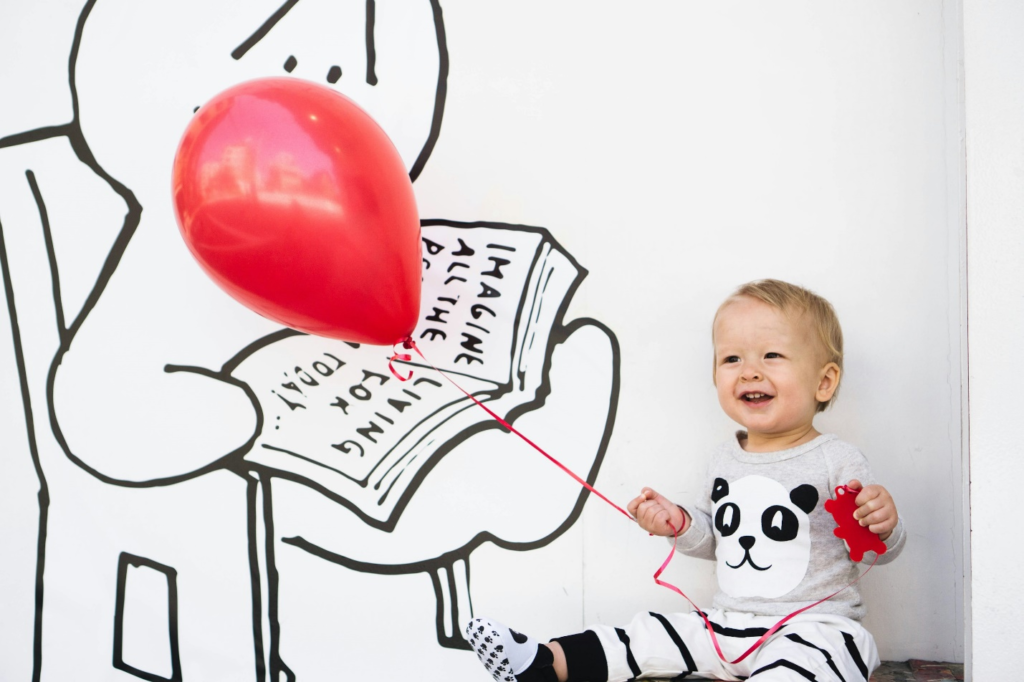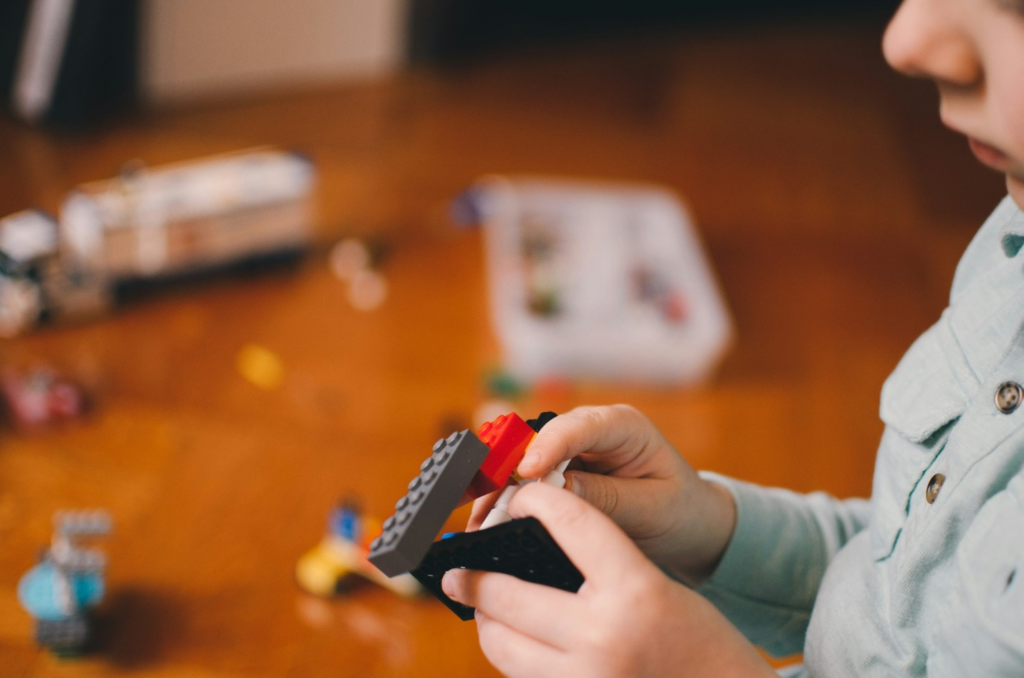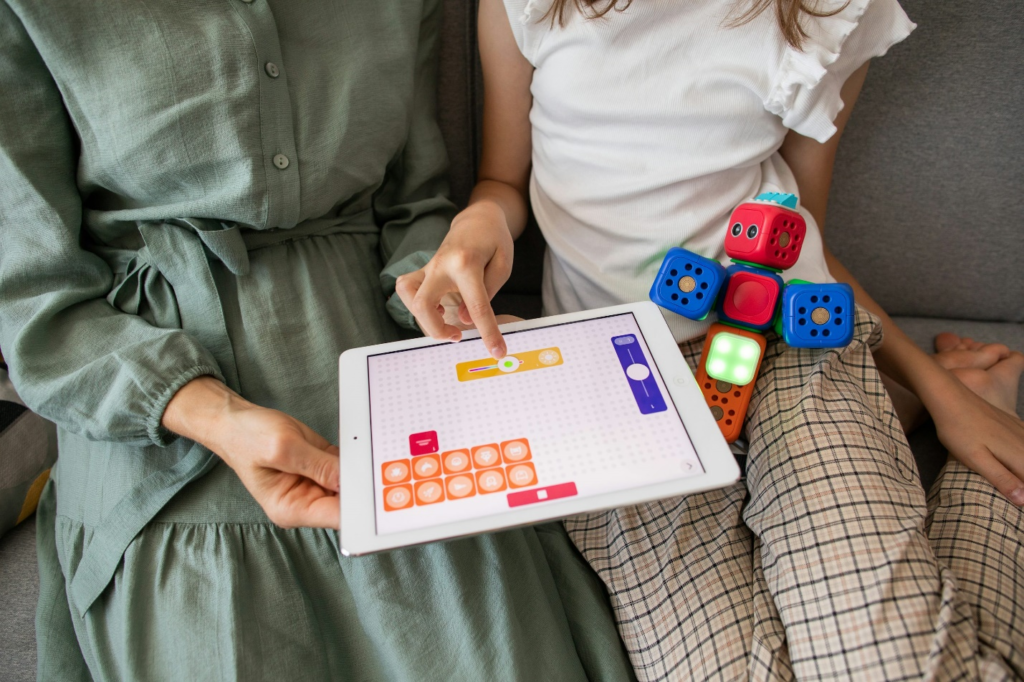Emotional intelligence (EI) has emerged as a critical skill for success and well-being. While cognitive intelligence is often emphasized in traditional education, emotional intelligence is equally vital, especially in children. Emotional intelligence in children equips them with the ability to understand, manage, and express their emotions healthily, fostering resilience and a positive outlook on life.
This blog explores the importance of emotional intelligence, explores strategies for nurturing social-emotional skills in children, and highlights the role of specialized educational institutions in this endeavor.
What is Emotional Intelligence?
Emotional intelligence, also known as emotional quotient (EQ), is the ability to recognize, understand, and manage one’s own emotions and the emotions of others. It encompasses several key components:
- Self-awareness: Recognizing one’s emotions and their impact.
- Self-Regulation: Managing emotions in healthy ways.
- Motivation: Harnessing emotions to pursue goals.
- Empathy: Understanding the emotions of others.
- Social Skills: Managing relationships effectively.
For children, developing these skills is crucial as they navigate the complexities of social interactions and personal growth.
The Importance of Emotional Intelligence in Children
1. Enhancing Academic Performance
Children with high emotional intelligence tend to perform better academically. They can manage stress, stay motivated, and maintain focus. This is particularly important in inclusive settings like special needs schools in Hyderabad, where individualized attention can further enhance these skills.
2. Improving Relationships
Emotional intelligence helps children build stronger relationships with peers, teachers, and family members. Empathy and social skills enable them to interact positively, resolve conflicts, and develop lasting friendships.
3. Fostering Resilience
Resilience is the ability to bounce back from setbacks. Children with strong emotional intelligence are better equipped to handle challenges, adapt to change, and recover from adversity.
4. Promoting Mental Health
Developing emotional intelligence can significantly impact a child’s mental health. Understanding and managing emotions can reduce anxiety, depression, and behavioral problems, fostering overall well-being.

5. Preparing for Future Success
In the long term, emotional intelligence contributes to a child’s personal and professional success. It enables individuals to navigate complex social landscapes, make informed decisions, and lead fulfilling lives.
Strategies for Nurturing Emotional Intelligence in Children
1. Encourage Self-Awareness
Journaling: Encourage children to keep a journal where they can express their thoughts and feelings. This practice helps them become more aware of their emotions and patterns.
Emotional Check-Ins: Regularly ask children how they feel and encourage them to articulate their emotions. This can be done through conversations, drawings, or emotion charts.
2. Teach Self-Regulation
Mindfulness Practices: Introduce mindfulness exercises such as deep breathing, meditation, or yoga. These practices help children calm their minds and manage stress.
Modeling Behavior: Demonstrate healthy ways to handle emotions. Children learn by observing adults, so show them how to manage anger, frustration, and sadness constructively.
3. Foster Motivation
Goal Setting: Help children set achievable goals and celebrate their accomplishments. This builds intrinsic motivation and a sense of purpose.
Positive Reinforcement: Provide positive feedback and encouragement. Recognize their efforts and progress, not just the outcomes.

4. Cultivate Empathy
Reading and Storytelling: Share stories that highlight different emotions and perspectives. Discuss the characters’ feelings and actions to foster empathy.
Role-Playing: Engage children in role-playing activities where they can practice understanding and responding to others’ emotions.
5. Develop Social Skills
Group Activities: Encourage participation in group activities and team sports. These settings provide opportunities to practice cooperation, communication, and conflict resolution.
Social Stories: Use social stories to teach appropriate social behavior and responses. These stories can be particularly effective in schools for autism in Kondapur, where children benefit from clear, structured examples.
The Role of Special Education Programs in Developing Emotional Intelligence
Creating a Supportive Environment
Special education programs in Hyderabad play a crucial role in fostering emotional intelligence. By creating a supportive and inclusive environment, these programs ensure that every child’s emotional and social needs are met.
Individualized Attention
In special needs education centers, individualized attention is key. Educators and therapists work closely with each child to develop personalized strategies that cater to their unique emotional needs.

Integrating Social-Emotional Learning (SEL)
Many special education programs integrate Social-Emotional Learning (SEL) into their curriculum. SEL focuses on developing emotional intelligence through structured activities and lessons.
Providing Resources and Training
Special needs schools in Hyderabad often provide resources and training for parents and caregivers. This ensures that the strategies used in school are reinforced at home, creating a consistent support system for the child.
Practical Applications and Activities to Build Emotional Intelligence
Building emotional intelligence in children involves practical, hands-on activities that help them understand and manage their emotions, develop empathy, and improve social skills.

Here are some detailed strategies and activities that can be incorporated at home, in schools, and in special education settings:
· Emotion Identification Games
Understanding and labeling emotions is the first step in building emotional intelligence.
- Flashcards and Emotion Wheels: Use flashcards with pictures of different facial expressions and corresponding emotions. Emotion wheels can also help children visualize and categorize their feelings.
- Interactive Apps: Leverage technology with apps designed to teach emotional vocabulary.
- Storytelling and Role-Playing: Create stories or scenarios where characters experience various emotions. Ask children to identify and discuss the emotions displayed by the characters. Role-playing these scenarios helps reinforce their understanding.
- Feelings Chart: Use a feelings chart where children can point to how they are feeling at different times of the day. This helps them become more aware of their emotional states and learn the language to describe them.
· Breathing Exercises
Breathing exercises are effective tools for helping children calm down, focus, and manage their emotions.
- Balloon Breathing: Teach children to inhale deeply through their noses, imagining they are inflating a balloon in their belly. Then, they slowly exhale through their mouths, deflating the balloon. This visualization makes deep breathing more engaging.
- Counting Breaths: Instruct children to count to four as they inhale and then count to four as they exhale. This rhythmic counting can help them focus and regulate their breathing.
- Square Breathing: Introduce square breathing, where children visualize drawing a square as they breathe. Inhale for a count of four while drawing one side, hold for a count of four while drawing the next side, exhale for a count of four, and hold again for a count of four.
- Breathing Buddies: Give children a small stuffed animal to place on their belly. As they breathe in and out, they can watch the stuffed animal rise and fall, making the exercise more tangible.

· Emotion Regulation Tools
At KARUNA, we provide children with tools to manage their emotions can help them develop self-regulation skills.
- Stress Balls and Fidget Toys: Stress balls, fidget spinners, and other sensory toys can help children release pent-up energy and reduce anxiety.
- Calming Jars: Create calming jars filled with water, glitter, and a bit of glue. Shaking the jar and watching the glitter settle can be a soothing activity for children when they feel overwhelmed.
- Emotion Regulation Kits: Put together kits containing various items like coloring books, playdough, scented oils, and calming music. These kits can be tailored to each child’s preferences and used when they need to relax.
- Safe Spaces: Designate a quiet corner or a “calm down” area where children can retreat when they need to regulate their emotions. This space can be equipped with soft pillows, blankets, and other calming items.
· Empathy Building Activities
Empathy is a crucial component of emotional intelligence that helps children understand and connect with others’ feelings.
- Volunteering: Engage children in community service projects where they can help others. Activities like visiting nursing homes, participating in food drives, or cleaning up parks teach children to care for their community.
- Caring for Pets: Involve children in the care of family pets. Feeding, grooming, and playing with pets can teach responsibility and empathy as they learn to consider the needs of another living being.
- Empathy Games: Play games that focus on perspective-taking. For example, “What Would You Do?” scenarios encourage children to think about how they would feel and respond in different situations.
- Classroom Discussions: In special needs schools in Hyderabad, regular classroom discussions about empathy and kindness can be integrated into the curriculum. Use real-life examples and ask children how they would feel in someone else’s shoes.
· Social Skills Workshops
Workshops that focus on social skills are essential for children to learn how to interact positively with others.
- Friendship Skills: Organize workshops that teach the basics of making and maintaining friendships. Activities can include role-playing introductions, sharing, and cooperative play.
- Conflict Resolution: Teach children strategies for resolving conflicts peacefully. Role-playing different conflict scenarios and discussing appropriate responses can prepare them for real-life situations.
- Communication Skills: Conduct activities that enhance verbal and non-verbal communication skills. Practice active listening, eye contact, and appropriate body language.
- Team-Building Exercises: Use team-building games and activities to teach cooperation and teamwork. These exercises can help children learn to work together, share ideas, and support each other.
· Art and Creative Expression
Art and creative activities are powerful tools for helping children express and understand their emotions.
- Emotion Art Projects: Encourage children to create art that represents their feelings. This could include drawing, painting, or crafting. Ask them to choose colors and shapes that match their emotions and then explain their artwork.

Story Creation: Have children create their own stories or comic strips where the character’s experience and navigate different emotions. This activity helps them think about emotional responses and consequences.
Music and Dance: Use music and dance as outlets for emotional expression. Children can create movements to match different types of music, helping them connect physical activity with emotional states.
Drama and Role Play: Engage children in drama activities where they act out different scenarios and emotions. This helps them understand and practice empathy and emotional responses in a safe and controlled environment.
Case Studies: Success Stories from Special Needs Schools
Case Study 1: Building Confidence through SEL (Social Emotional Learning)
At one of the leading special needs schools in Hyderabad, a young boy with autism struggled with social interactions and emotional regulation. Through the school’s comprehensive SEL program, he learned to identify his emotions and practice self-regulation techniques. Over time, his confidence grew, and he began to form meaningful friendships.
Case Study 2: Empowering Children with ADHD
A special education program in Hyderabad integrated mindfulness practices into the daily routine for children with ADHD. These practices helped them develop better focus and self-control, leading to improved academic performance and reduced behavioral issues.
Case Study 3: Enhancing Empathy in Students
At KARUNA, our school for autism in Kondapur, educators implemented a reading program that included stories about diverse cultures and experiences. This program significantly enhanced the students’ empathy and understanding of different perspectives.
The Future of Emotional Intelligence in Education
As the importance of emotional intelligence becomes increasingly recognized, schools and educators are adopting innovative approaches to nurture these skills. The future of education will likely see a greater emphasis on social-emotional learning, with programs specifically designed to foster emotional intelligence in children.
· Technology and Emotional Intelligence
Advancements in technology are also playing a role in this shift. Educational apps and online platforms are being developed to teach and reinforce emotional intelligence skills. Virtual reality, for example, can provide immersive experiences that teach empathy and social skills.

· Collaborative Efforts
The development of emotional intelligence in children requires a collaborative effort between schools, parents, and communities. By working together, we can create a supportive environment that nurtures the emotional and social well-being of every child. By understanding the importance of emotional intelligence and implementing strategies to nurture these skills, we can help children develop resilience, build strong relationships, and achieve their full potential.
At KARUNA, we are dedicated to fostering emotional intelligence in our students through our comprehensive special education programs. Our team of experienced educators and therapists is committed to providing a supportive and inclusive environment where every child can thrive. If you are looking for a special needs education center in Hyderabad that prioritizes emotional and social development, contact KARUNA today. Let’s work together to unlock the potential within every child and build a brighter future.
